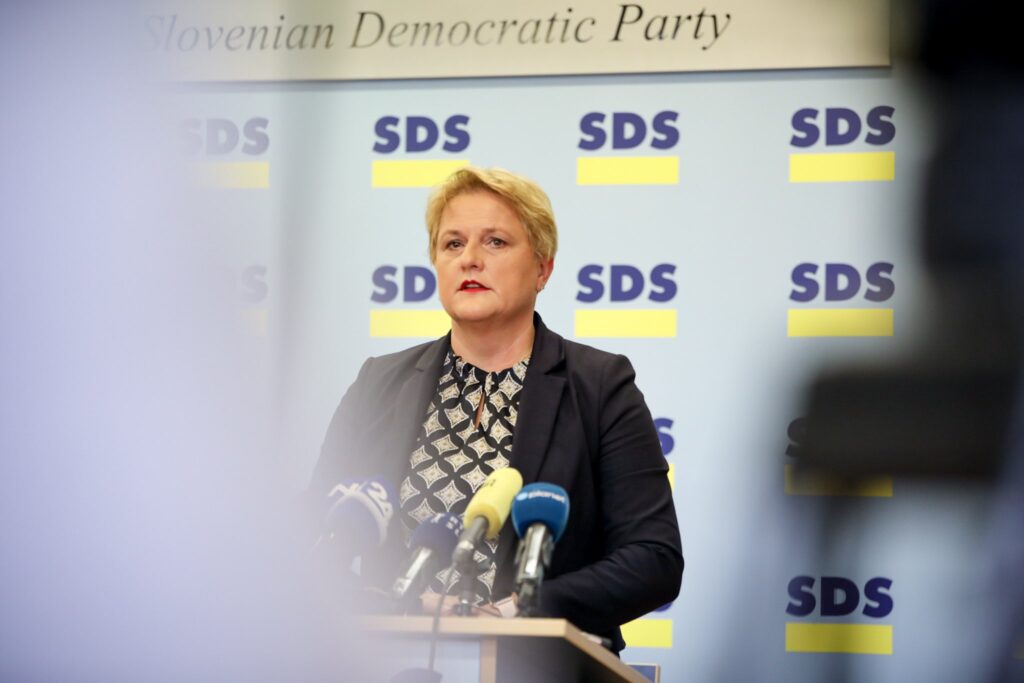Given the recent reports of the media that the Government and the Ministry of Health now have a clear picture of the current situation in healthcare, the Slovenian Democratic Party (Slovenska demokatska stranka – SDS) expects that a timeline for resolving the situation in healthcare will be set with clear and realistic dates, and above all, that these dates will be respected in the implementation. At the request of the SDS parliamentary group, an extraordinary session of the National Assembly will be held next Wednesday, where the MPs will discuss the recommendations that the SDS party presented to the public last week.
On Wednesday, the government coalition held a summit at Brdo pri Kranju, where only the healthcare sector was discussed – although, according to the initial announcements, the starting points for reforms of taxes, the pension system, education, public sector wages and housing policy were also to be discussed. At the summit, an analysis was presented of the state of Slovenian healthcare, which, according to Prime Minister Robert Golob, is worse than anyone thinks. “The good news is that the reasons why the situation is so bad, have now been identified, and there is a plan in place,” he announced. “With regard to the journalists’ requests for the Slovenian Democratic Party’s reaction to yesterday’s coalition summit, we would like to preface our response by saying that we are, of course, not yet in a position to give an assessment of yesterday’s agreements, as we are not officially aware of the figures and proposals that were discussed by the coalition partners,” the SDS party said.
Given the reports of the media that the Government and the Ministry of Health now have a clear picture of the current situation in healthcare, the Slovenian Democratic Party expects that a timeline for resolving the situation in healthcare will be set with clear and realistic dates, and above all, that these dates will be respected in the implementation. “Even Prime Minister Robert Golob spoke yesterday about a broad consensus, but unfortunately (yet again), he did not mention the opposition,” they noted, adding that the SDS party is always prepared to support good solutions that would actually bring about results. In light of this, at the request of the SDS parliamentary group, the National Assembly of the Republic of Slovenia will hold an extraordinary session as early as next Wednesday to discuss the recommendations that the SDS party presented to the public last week.
In view of the catastrophic situation in the healthcare sector, the SDS party proposed that the National Assembly adopt the following recommendations:
- The National Assembly of the Republic of Slovenia calls on the Government of the Republic of Slovenia to immediately propose an amendment to the Public Procurement Act to reintroduce the reference price system for the procurement of medical supplies, thus bringing the prices of medical supplies in Slovenia closer to comparable prices in other European Union countries. The funds obtained for this purpose should be systematically channelled towards eliminating wage disparities in the healthcare sector and shortening waiting times.
- The National Assembly of the Republic of Slovenia calls on the Government of the Republic of Slovenia to prepare and propose a new salary system in the healthcare sector within 30 days, in cooperation with trade unions and professional organisations in the healthcare sector. At the same time, the Government should also prepare a proposal for the elimination of wage disparities in all other parts of the public sector and start negotiations for a new salary system with those parts of the public sector that constitute a rounded whole and that wish to have either a separate salary system or a separate pillar within the current framework.
- The National Assembly of the Republic of Slovenia calls on the Government of the Republic of Slovenia, in cooperation with all parliamentary parties, professional, trade unions, and other interest organisations of the healthcare sector and patient associations, to prepare, within 30 days, a law on intervention measures in the health sector, which should:
a. temporarily mobilise all available reserves in all parts of the healthcare system and additional resources to ensure the provision of healthcare to all those who pay for compulsory health insurance as soon as possible;
b. create a programme for the systemic return of Slovenian healthcare workers (doctors and nurses) who, due to the unregulated situation in the healthcare sector and the inadequate valuation of their work, have left for other professions or to work abroad.
Sara Kovač


